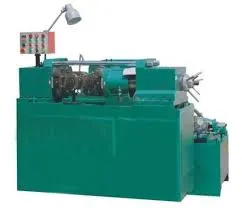
-
 Afrikaans
Afrikaans -
 Albanian
Albanian -
 Amharic
Amharic -
 Arabic
Arabic -
 Armenian
Armenian -
 Azerbaijani
Azerbaijani -
 Basque
Basque -
 Belarusian
Belarusian -
 Bengali
Bengali -
 Bosnian
Bosnian -
 Bulgarian
Bulgarian -
 Catalan
Catalan -
 Cebuano
Cebuano -
 Corsican
Corsican -
 Croatian
Croatian -
 Czech
Czech -
 Danish
Danish -
 Dutch
Dutch -
 English
English -
 Esperanto
Esperanto -
 Estonian
Estonian -
 Finnish
Finnish -
 French
French -
 Frisian
Frisian -
 Galician
Galician -
 Georgian
Georgian -
 German
German -
 Greek
Greek -
 Gujarati
Gujarati -
 Haitian Creole
Haitian Creole -
 hausa
hausa -
 hawaiian
hawaiian -
 Hebrew
Hebrew -
 Hindi
Hindi -
 Miao
Miao -
 Hungarian
Hungarian -
 Icelandic
Icelandic -
 igbo
igbo -
 Indonesian
Indonesian -
 irish
irish -
 Italian
Italian -
 Japanese
Japanese -
 Javanese
Javanese -
 Kannada
Kannada -
 kazakh
kazakh -
 Khmer
Khmer -
 Rwandese
Rwandese -
 Korean
Korean -
 Kurdish
Kurdish -
 Kyrgyz
Kyrgyz -
 Lao
Lao -
 Latin
Latin -
 Latvian
Latvian -
 Lithuanian
Lithuanian -
 Luxembourgish
Luxembourgish -
 Macedonian
Macedonian -
 Malgashi
Malgashi -
 Malay
Malay -
 Malayalam
Malayalam -
 Maltese
Maltese -
 Maori
Maori -
 Marathi
Marathi -
 Mongolian
Mongolian -
 Myanmar
Myanmar -
 Nepali
Nepali -
 Norwegian
Norwegian -
 Norwegian
Norwegian -
 Occitan
Occitan -
 Pashto
Pashto -
 Persian
Persian -
 Polish
Polish -
 Portuguese
Portuguese -
 Punjabi
Punjabi -
 Romanian
Romanian -
 Russian
Russian -
 Samoan
Samoan -
 Scottish Gaelic
Scottish Gaelic -
 Serbian
Serbian -
 Sesotho
Sesotho -
 Shona
Shona -
 Sindhi
Sindhi -
 Sinhala
Sinhala -
 Slovak
Slovak -
 Slovenian
Slovenian -
 Somali
Somali -
 Spanish
Spanish -
 Sundanese
Sundanese -
 Swahili
Swahili -
 Swedish
Swedish -
 Tagalog
Tagalog -
 Tajik
Tajik -
 Tamil
Tamil -
 Tatar
Tatar -
 Telugu
Telugu -
 Thai
Thai -
 Turkish
Turkish -
 Turkmen
Turkmen -
 Ukrainian
Ukrainian -
 Urdu
Urdu -
 Uighur
Uighur -
 Uzbek
Uzbek -
 Vietnamese
Vietnamese -
 Welsh
Welsh -
 Bantu
Bantu -
 Yiddish
Yiddish -
 Yoruba
Yoruba -
 Zulu
Zulu
thread rolling machine flat die companies
Exploring Thread Rolling Machines and Flat Die Companies
Thread rolling has become a crucial process in modern manufacturing, especially for industries requiring precision-engineered components. This method enhances the physical properties of materials through cold working, resulting in improved strength and fatigue resistance. The heart of this process lies in thread rolling machines, specifically those using flat dies. In this article, we delve into the significance of thread rolling machines and the importance of companies that manufacture flat die technologies.
Understanding Thread Rolling Machines
Thread rolling machines are specialized equipment designed to create threads on cylindrical materials, such as bolts, screws, and other fasteners. The rolling process involves the continuous deformation of the material without removing any metal, which contrasts with traditional machining methods. This non-cutting method helps maintain material integrity, reduces waste, and increases production speed.
Flat die thread rolling machines utilize two flat dies that impart the desired thread profile onto the workpiece. As the material passes through the rollers, it is compressed and elongated, forming threads. The flat die design is particularly advantageous for producing larger-diameter threads or when specific geometrical configurations are required.
Benefits of Using Flat Die Thread Rolling Machines
1. High Precision and Accuracy Flat die machines provide greater control over the threading process, ensuring that dimensions are met with high precision. This is critical in sectors where parts are expected to fit seamlessly within assembly lines, such as automotive and aerospace industries.
2. Enhanced Material Properties Through the cold working process, the material undergoes strain hardening, resulting in increased tensile strength and improved surface hardness. This fortification makes rolled threads more resilient to stress and wear.
thread rolling machine flat die companies

3. Cost-Effectiveness Thread rolling minimizes scrap and reduces machining time, thereby lowering production costs. The ability to produce high volumes of threaded parts quickly is a significant advantage for manufacturers looking to meet market demand efficiently.
4. Versatility Flat die rolling machines can accommodate various materials, including steel, aluminum, and specialized alloys, making them suitable for a wide range of applications across different industries.
Companies Leading the Way
As the demand for thread rolling technology grows, several companies have emerged as leaders in this sector. Notable manufacturers focus on innovation and efficiency in their machine designs, ensuring compatibility with modern production systems. They not only produce high-quality flat die machines but also provide comprehensive support services, including maintenance and training for operators.
These manufacturers often invest in research and development to enhance the performance of their machines, integrating automated features that improve precision and reduce cycle times. Their commitment to quality and technological advancement positions them as trusted partners for businesses seeking to optimize their manufacturing processes.
Conclusion
In conclusion, thread rolling machines, especially those employing flat die technologies, play a vital role in the manufacturing landscape. Their ability to produce high-strength, high-accuracy threaded components efficiently addresses the increasing demands of various industries. As leading companies continue to advance in this field, the future of thread rolling looks promising, providing manufacturers with opportunities to innovate and thrive in a competitive market. Investing in advanced thread rolling machines is a step toward ensuring quality and efficiency in production, reflecting the evolving nature of modern manufacturing practices.
